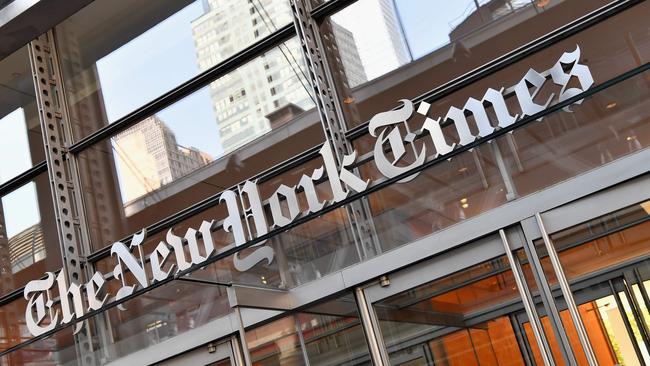Media push on tech giants ‘a dress rehearsal for world’
International publishers have warned tech titans that the world is viewing the debate over the proposed news media code in Australia as a ‘dress rehearsal’ for similar deals.

Heavyweight international publishing groups have warned tech titans that the world is viewing the debate over the proposed news media code in Australia as a “dress rehearsal” for similar deals across the globe, and rubbished Google’s “silly” threat to exit certain markets if it is forced to pay for news content.
News Media Alliance — the largest media trade organisation in the US, which counts The Wall Street Journal and The New York Times as members — said Australia was leading the global charge against the bullying tactics of Google.
“Misinformation is a plague on civic society and the Australian government is a leader in understanding that the first step to addressing the problem is ensuring that quality news and information can live online.
“Professional journalism is, in all respects, an antidote to misinformation and hate speech,” said David Chavern, the group’s chief executive.
“Australia is one of the first countries to try to address what a news compensation system should look like, but they won’t be the last and you now see governments around the world watching the Australian example.
“Google’s threat to remove itself from Australia is simply silly and counter-productive.
“No one likes ultimatums and if Google delivers too many, Australians may start to welcome their departure.”
Google and Facebook continue to resist key elements of the federal government’s proposed media code, which would see them pay local publishers for the use of their content.
Google Australia managing director Melanie Silva told a parliamentary hearing last week that the code, in its current form, would make it “untenable” for the $US1.8 trillion digital behemoth to operate in Australia, and it would turn off the company’s search engine in Australia if the legislation was passed by the Senate, possibly as early as next month.
“It’s not a threat, It’s a reality,” Ms Silva said.
Scott Morrison issued a swift rebuke on Friday, saying the Australian government “doesn’t respond to threats”.
Angela Mills Wade, executive director of the European Publishers Council, a high-level lobby group of chief executives of leading European media groups, also dismissed the idea Google would ever seriously consider exiting a market as lucrative as Australia. “I think (the threat) is self-defeating. Nobody reacts well to threats, least of all democratically elected governments, and it is only possible because Google enjoys a near total monopoly of search (95 per cent in Australia),” she told The Australian.
“Such a threat is the ultimate display of a monopolist setting themselves above the law and normal business conduct, and won’t go down well at all.”
She said it was a hollow threat regardless, as Google wouldn’t want to leave the door open for its competitors to fill the void.
“They wouldn’t want to see alternative providers — not only filling the large space they would leave behind, but flourishing as competition would thrive once the dark shadow of a monopolist is lifted.”
Google and Facebook have been using their monopoly power to undermine publishers’ rights in countries across the world for years, said Ms Mills Wade, and the Australian government had been clever to have sought to resolve the issue with such urgency.
“Australia’s lead will no doubt prove the dress rehearsal for other jurisdictions which are determined to bring these digital gatekeepers under democratic control,” she said.
Britain’s News Media Association, which represents small, local publishers as well as national titles including The Sun and The Guardian, also flagged that the Australian media code could become the international blueprint for how news media companies could secure fair compensation for their content, which is exploited by the digital platforms for financial gain.
“We welcome steps taken by Australian authorities to tackle the imbalance between the tech giants and the news media sector which set an important precedent for other countries across the globe,’’ the association said.
‘‘We hope the Australian government does not give in to heavy-handed threats.
“In the UK, we welcome the progress made by our competition authorities and urge the government to legislate swiftly.’’



To join the conversation, please log in. Don't have an account? Register
Join the conversation, you are commenting as Logout